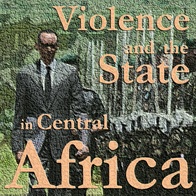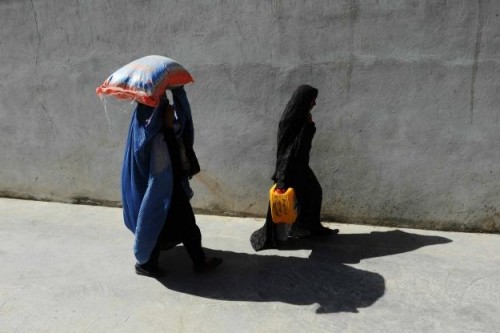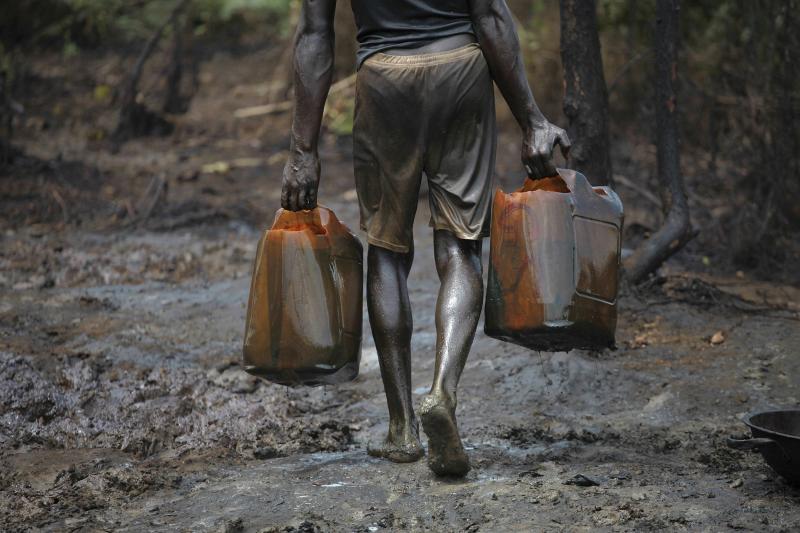
Paying your soldiers and building the state in post-genocide Rwanda
Ensuring soldiers have legal access to financial resources is crucial for the state to fulfil its primary mission: retain the monopoly of violence. As seen in the Democratic Republic of Congo, difficulties providing soldiers with adequate resources may result in deteriorating discipline, corruption, defection, and human rights abuses.
Rwanda after the genocide faced the difficult task of paying its soldiers. The post-1994 situation made this challenge inescapable. The Rwandan Patriotic Front (RPF) took power in a ruined country. The economy was entirely destroyed, and fleeing officials of the previous regime had emptied state coffers. The resources to pay soldiers were virtually non-existent. In addition, following the RPF victory, many families returned from exile to Rwanda. Consequently, soldiers of the Rwandan Patriotic Army (RPA, the armed wing of the RPF) were not just guerrilla fighters anymore: they became fathers, husbands, or brothers again. This new financial burden on soldiers’ shoulders created a form of indiscipline largely unknown until then in the RPA’s ranks. In addition, the meagre salaries were made in cash, transported by intermediaries from the Ministry of Defence to soldiers, which multiplied the opportunities for embezzlement and the creation of ‘ghost soldiers’. Worse, the opportunities for soldiers to borrow money were extremely limited at the time. Many had no property in Rwanda and consequently no collateral to offer to the few banks still functioning.

(Under)taxation of North Sea Oil and Gas Production and its Implications for Scottish Independence
The Guardian newspaper recently published an article by Aditya Chakrabortty entitled ‘Dude, where’s my North Sea oil money?’ (13 January 2014), which drew a comparison between Norway and the UK in terms of what approximately four decades’ worth of fiscal income from oil and gas production has meant for each country. The main thrust of the article was to suggest that the reason why the UK does not have a colossal nest egg like Norway’s is that the UK government effectively squandered its windfall in tax breaks. That is true, but not in the way Chakrabortty thinks.
Starting in 1981, once the Falklands conflict (and the need to pay for it) was over, the UK government led by Margaret Thatcher embarked on a process (which accelerated greatly under John Major and even more so under the Blair-Brown Labour governments) of levying progressively less and less taxes on oil and gas exploration and production activities. In other words, Chakrabortty is right in saying that most of the windfall was squandered in tax breaks but, overwhelmingly, the main recipient of these tax breaks was the UK oil and gas industry. As oil prices have skyrocketed from 2000 onwards, the differences in the amounts that the UK levies compared to other large North Sea producers (and not only Norway) have reached astonishing proportions.

Oxford to Yemen: from literary scholar to tribal adviser
In today’s academic environment, two watchwords that crop up on most project target lists are interdisciplinarity and impact. Find out how both are being brought to bear on new research in the outlying tribal regions of Yemen. As a Senior Research Fellow and Arabic specialist I have been working in Egypt and Yemen in the years following the outbreak of the Arab Spring in 2010. My research started in Egypt with a survey of media, culture and public opinion in the aftermath of the revolution, together with political scientists from Oxford’s DPIR and Cairo University. At the same time, my study of the use of poetry in Yemen’s jihadist journals brought me to a new political interest in how Yemen’s transition to a federal system is playing out in Yemen’s eastern regions. Together with local tribesmen, I sought to gather popular opinion on the range of social, economic and political challenges facing them, which in turn precipitated the formation of an elected cross-tribal council. I’m continuing to talk to governments and the UN about problems faced by the tribes in eastern Yemen and the associated political instability.

Stabilising provincial Afghanistan: How to get It right
Kabul’s ongoing presidential election negotiations aren’t the only dramatic transition underway in Afghanistan. The ambitious U.S.-led “surge” launched in 2009, which bolstered foreign troops mainly in southern and eastern Afghanistan, has given way to a drawdown, paralleling a major downsizing in the development sphere. Aid budgets are contracting, and provincial reconstruction teams (PRTs) and other subnational civil-military installations — long key international platforms to distribute aid and engage local politics outside Kabul — are closing down.
As the local-level foreign official presence phases out of more volatile and remote areas, how should donor assistance strategies adjust? A new paper from the U.S. Institute of Peace, which builds upon fieldwork from the past three years, argues that 2014 marks an important opportunity for donors to recalibrate three central tenets of their subnational governance and development strategy.
First, donors should revise their conceptions of assisting Afghan government “service delivery.” To be sure, delivering services seems commonsensical in a country that sorely lacks them, but PRT-based projects often confused their ambition to cultivate recurring services with their reality of launching a constellation of unsystematic and often one-time projects. The sheer numbers of foreign personnel and agencies operating at the subnational level — all responding to a higher-level focus on “burn rates” — further fueled the disparate character of aid distribution.

On the path to inequality
What do we really know about how wealth and income have evolved since the 18th century and what lessons can we take from that for centuries to come? For Thomas Piketty in Capital in the Twenty-First Century, one lesson is clear: inequality is self-generating within a capitalist system.
Capital, a magnificent 650-page work, first appeared in France late last year and already looms, in Paul Krugman’s eyes, as ‘‘the most important economics book of the year — and maybe of the decade’’. It is important because inequality is emerging as what Barack Obama recently called ‘‘the defining challenge of our time’’.
Piketty, whose work on income inequality helped inspire the Occupy Wall Street movement, is particularly well placed to answer these questions. He is a bit of a strange creature in modern economics: as much an economic historian and archeologist as a number-crunching theorist.
An academic at one of France’s elite grandes ecoles, Piketty has spent the past 20 years not only seeking to come to grips with economic inequality but also to make his conclusions digestible for public consumption.
After a period at the top American universities in the 1990s, he returned to France convinced American economics was infused with a ‘‘childish passion for mathematics’’ and was merely a forum ‘‘for purely theoretical and often highly ideological speculation … preoccupied with petty mathematical problems of interest only to themselves’’. In Capital, Piketty has surely avoided that.

Avoiding Africa’s oil curse
East Africa is the global oil and gas industry’s hottest frontier. Barely a month goes by, it seems, without a major discovery in Mozambique, Tanzania, Uganda, or the eastern Democratic Republic of the Congo.
This new African windfall is hardly without precedent. Several west and central African states — most notably Angola and Nigeria — have already experienced petroleum booms of their own. Over the last decade, they benefited from a spectacular jump in oil prices, which rose from $22 per barrel in 2003 to $147 per barrel in 2008 and remained high, for the most part, until recently. The spoils were enormous: from 2002 to 2012, Angola’s GDP jumped from $11 billion to $114 billion and Nigeria’s went from $59 billion to $243 billion.
The opportunity afforded by this extraordinary decade was unprecedented and is unlikely to recur. Sadly, however, decision-makers have mostly squandered it. If the new east African producers are not to repeat the mistakes of the established ones, then, they should heed the lessons of Africa’s last oil boom.

What is the future for the ‘China governance model’?
The leadership turnover in China last year took place in a shifting political situation. Namely, there have been increased calls for more political accountability and multi-candidate elections, broader media freedom and financial reform.
We need to watch this closely. How China’s leadership reacts to these calls for change will determine whether it will continue its phenomenal ‘rise’ or be hampered by intransigence.
Let’s take a closer look at the context. The uprisings in the Arab world have prompted many to ask whether China will be the next to be swept along in a wave of popular unrest that has toppled rulers in several countries. Indeed, the Chinese leadership, both in power and previously in power, has been watching the situation carefully. This attention has been particularly justified considering that the current Chinese president assumed power at a time when social media became a real force. These new forms of communication played an undisputable role in the Arab and Maghreb uprisings. Now, half a billion Chinese are registered on Sina Weibo, a website much like Twitter. This online platform has served “netizens” to voice many complaints ranging from governance malfunctions and corruption to food and environmental issues.
This raises inevitable questions. Is the bid for democratic reform a matter of time? Might the prediction of an “end of history” and of a uniform move in the direction of liberal democracy make a comeback? Or, might there be other sustainable alternatives?

Understanding Neoliberal Legality: Perspectives on the use of law by, for and against the neoliberal project
Neoliberal institutional and economic reforms have attracted substantial scholarly attention in recent decades, but the role of law in the neoliberal story has been relatively neglected. ‘Understanding neoliberal legality’ was the subject of a day-long conference I organised at Oxford in June, which was generously sponsored by the Department of Politics and International Relations. The event drew together 40 established and emerging academics from across the UK and as far away as Canada, Finland, and Australia. These scholars have been independently researching various aspects of the role of law in the construction and contestation of neoliberalism. Many are members of major research networks in political and legal studies, such as the Institute for Global Law and Policy based at Harvard Law School, and edit prominent sites of scholarly discussion such as the debuting London Review of International Law.
The questions and dilemmas animating the meeting included the following:
• What form does law take under neoliberalism and to what extent is this new and different?
• What role do the content and form of law play in shaping the economic, political, and ideological pillars of the neoliberal project?
• What are the implications of these shifts for the ways in which neoliberalism is negotiated and resisted?









